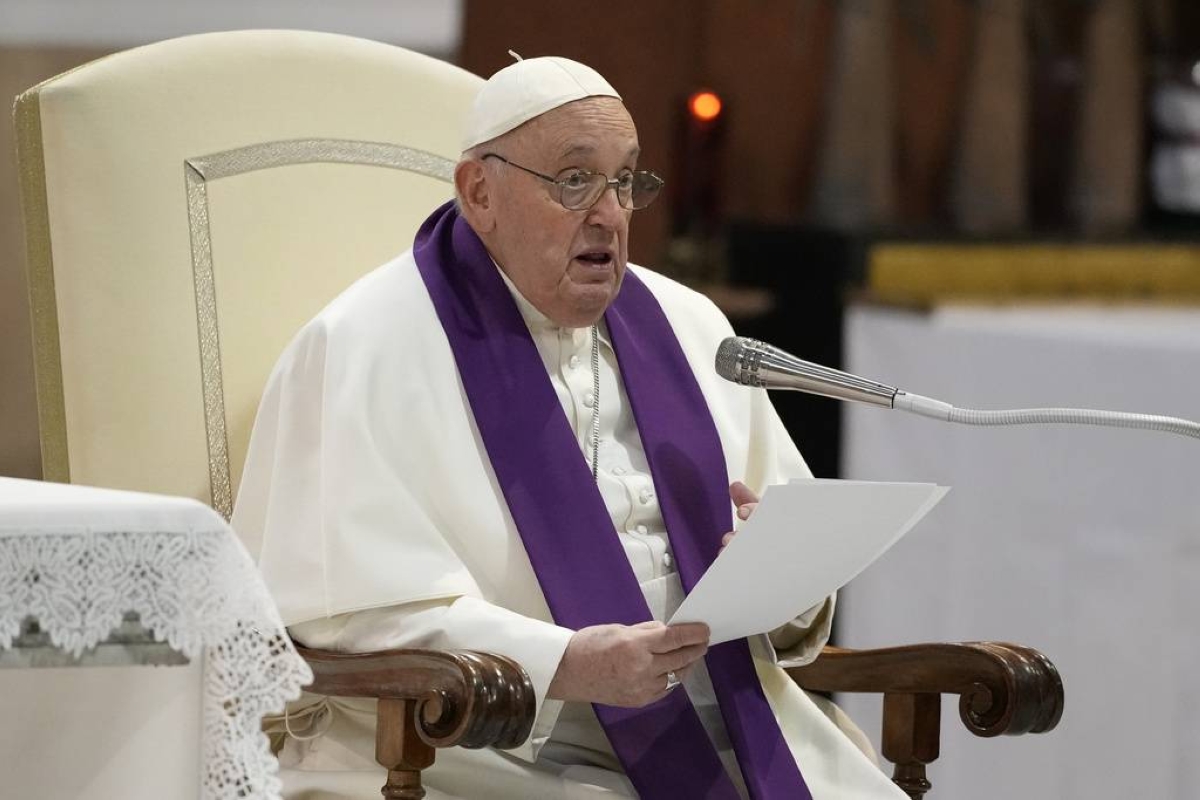Vatican City: In a recent interview broadcasted by Swiss television, Pope Francis has made a heartfelt appeal to the parties involved in the Ukraine war, urging them to find the courage to engage in negotiations before the situation escalates any further. The 87-year-old pontiff was responding to a question raised by the public broadcaster RTS, regarding the ongoing debate within Ukraine on whether to surrender to Russia’s invasion.
The Pope’s words carry immense weight, as he is known for his unwavering commitment to peace and justice. His call for negotiations is a powerful reminder that dialogue and diplomacy should always be the first course of action in resolving conflicts. Pope Francis understands the devastating consequences of war and the toll it takes on innocent lives, and he is determined to do everything in his power to prevent further suffering.
The conflict in Ukraine has been a source of great concern for the international community. The invasion by Russia has led to a protracted and bloody war, with countless lives lost and communities torn apart. It is in this context that the Pope’s plea for negotiations takes on even greater significance.
By urging the parties involved to “have the courage to negotiate,” Pope Francis is emphasizing the importance of finding peaceful solutions to conflicts. He understands that war only perpetuates violence and destruction, and that true strength lies in the ability to seek common ground and work towards reconciliation.
The Pope’s message is particularly relevant in the Ukrainian context, where tensions between Ukraine and Russia have been simmering for years. The question of whether to surrender to Russia’s invasion has divided the Ukrainian people, with some advocating for a peaceful resolution and others advocating for a more confrontational approach. Pope Francis’s call for negotiations seeks to bridge this divide and encourage all parties to come to the table with an open mind and a willingness to find common ground.
It is important to note that the Pope’s appeal is not a naive call for unconditional surrender. Rather, it is a plea for dialogue and compromise. Negotiations are a crucial tool in resolving conflicts, allowing for grievances to be addressed and for mutually beneficial agreements to be reached. By engaging in negotiations, both sides have the opportunity to voice their concerns and work towards a resolution that respects the rights and aspirations of all involved.
In making this appeal, Pope Francis is also reminding us of the importance of diplomacy in international relations. The Ukraine war is not just a local conflict; it has far-reaching implications for regional stability and global security. By calling for negotiations, the Pope is advocating for a peaceful resolution that can have a positive impact beyond the borders of Ukraine.
Pope Francis’s words serve as a reminder that even in the face of seemingly insurmountable challenges, there is always hope for peace. By urging the parties involved in the Ukraine war to engage in negotiations, he is offering a path towards reconciliation and healing. It is now up to the leaders and decision-makers to heed his call and prioritize the well-being of their people over their own political interests.
In conclusion, Pope Francis’s call for negotiations to end the Ukraine war is a powerful reminder of the importance of dialogue and diplomacy in resolving conflicts. His plea for all parties to “have the courage to negotiate” is a call to action that should not be ignored. As the international community continues to grapple with the devastating consequences of war, the Pope’s words serve as a beacon of hope and a reminder that peace is always possible, even in the darkest of times. Let us hope that his message is heard and that the parties involved in the Ukraine war find the strength to come together and seek a peaceful and just resolution.
Source: The Manila Times








